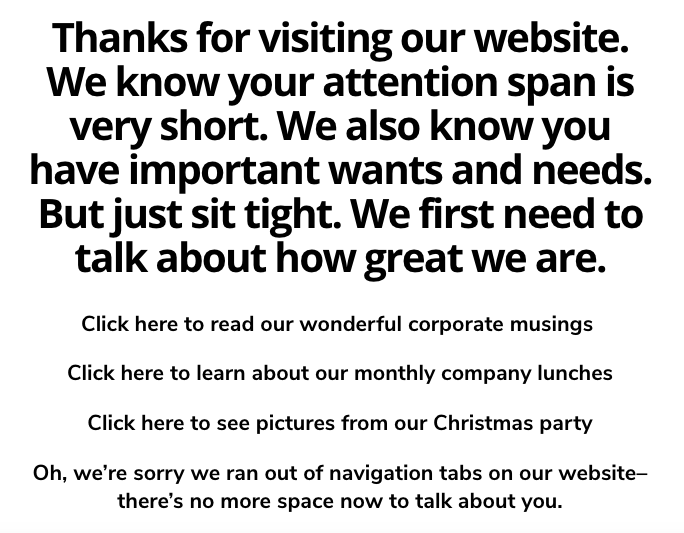"Simple can be harder than complex. You have to work hard to get your thinking clean to make it simple."
-Steve Jobs, Co-Founder of Apple
Study shows why you might fail to communicate 39 out of 40 times.
In 1990, Elizabeth Newton earned a Ph.D. in psychology at Stanford University by studying a simple game in which she assigned people to one of two roles: “tappers” or “listeners”. Tappers received a list of twenty-five well-known songs, such as “Happy Birthday to You” and “The Star-Spangled Banner”. Each tapper was asked to pick a song and tap out the rhythm to a listener (by tapping on a table). The listener’s job was to guess the song, based on the rhythm being tapped.
Seems simple enough, right? But, before the listeners guessed the name of the song being tapped, Newton asked the tappers to predict the odds that the listeners would guess correctly. The tappers predicted that the listeners would guess their songs correctly 50% of the time. They were wrong by a LONG SHOT! In fact, over the course of Newton’s experiment, 120 songs were tapped out. Listeners guessed correctly on only 3 out of 120 times! That’s 2.5% not 50%. The tappers communicated their message successfully only 1 out of 40 times, but they thought they would communicate successfully 1 out of 2 times.

Once we gain knowledge it’s almost impossible for us to imagine what it’s like to lack that knowledge.
The Curse of Knowledge is a cognitive bias that plays out every hour of every day in the business world. It can cost you millions of dollars in lost revenue when your company attempts to communicate with prospective customers. Curse of Knowledge problems occur when you unknowingly assume that the people you are trying to communicate with have the same ability to understand your industry jargon, buzzwords and complicated concepts.
Curse of Knowledge research demonstrates that it’s nearly impossible for people to accurately reconstruct their previous, less knowledgeable state of mind on topics they understand well. This means that CEOs and CMOs who know their products and services inside out find it very challenging to accurately reconstruct what a consumer or another executive, without their knowledge would think and how they would act without the knowledge that they have.
Making the simple complicated is commonplace; making the complicated simple, awesomely simple—that’s creativity.
Your company has about 8 seconds to overcome the “Spotlight Effect”.
For some crazy reason when you visit most company websites, 90% of the content is about how great they are.
Yes, your organization might have the greatest product or service since sliced bread. You might have fun parties and a great company culture. But your potential customer doesn’t care unless you show them how your product or service IMMEDIATELY meets their needs. And unless you can communicate that message in about 8 seconds, they will quickly move their attention to something else.
Psychology refers to a phenomenon called the “The Spotlight Effect” where people tend to OVERESTIMATE how much others notice aspects of their appearance or behavior … more simply, the belief that others care more about you than they care about themselves. In business this can be deadly when senior leaders think their company and product offerings are being noticed way more than they actually are. The Spotlight Effect can result in CEO’s and CMO’s behaving as if they are the center of the universe (their own bubble), and thus an accurate evaluation of how much they are actually noticed by potential customers is foreign to them.
“Strategies with words” is now the main arbitrage for businesses.
Let’s be honest when it comes to sales and marketing execution, many organizations are BORING and ineffective. 89% of CEO’s want more critical thinking from their marketing leadership and if sales don’t improve their CMO is the first to go. Today, with all the new media platforms available, there is a gigantic opportunity for your company to build trust, have important dialogues and build relationships with your customers. In this environment creative communication strategies are the main arbitrage. It’s the real opportunity that can pay in perpetuity. At Mars Hill Media we help clients invest in strategy and leverage it accordingly.
We're grateful for all your wise counsel and the work you did in helping get Spreading Hope Network into such a better position. Thank you! You're a great strategic advisor! "
– Dan Olson, Executive Director at Spreading Hope Network







